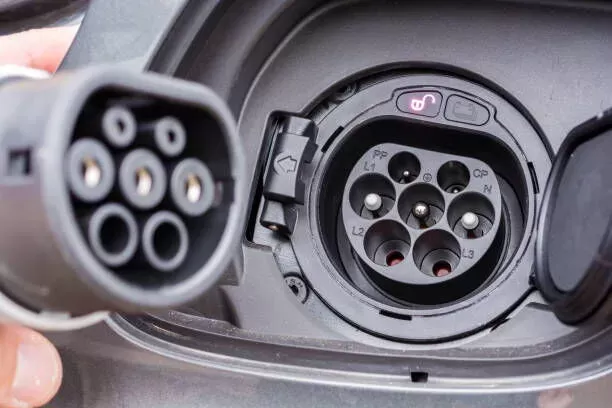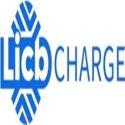Notifications

11 minutes, 16 seconds
-195 Views 0 Comments 0 Likes 0 Reviews

As the world’s largest and fastest-growing market for electric vehicles (EVs), China has played a key role in shaping the future of clean transportation. Central to this transformation is the GB/T charging standard—China's official EV charging protocol. Overseen by the Chinese government, the GB/T standard encompasses various operational, design, and safety requirements for both alternating current (AC) and direct current (DC) EV charging systems. It is a vital part of China’s strategy to expand its EV infrastructure, foster the widespread adoption of EVs, and create cleaner, more sustainable cities.As a leading EV charger manufacturer in China, LiCB Charge delivers reliable AC and DC electric vehicle charging stations along with comprehensive charging solutions.
The GB/T charging standard stands out due to its distinctive characteristics. Unlike global standards such as the Combined Charging System (CCS) in Europe or CHAdeMO in Japan, the GB/T standard was specifically created to meet China’s market needs. It incorporates unique connectors, communication protocols, and safety measures, setting it apart from international charging systems. With heavy investment from the Chinese government in EV infrastructure, this unified standard has streamlined the charging process, ensuring that EVs and charging stations can communicate effectively and operate seamlessly.
The GB/T standard addresses both AC and DC charging, each serving different needs:
The AC version of the GB/T connector is primarily used for slower, overnight charging. It supports charging up to 7.4 kW, making it ideal for home use or public stations with lower charging demands. In a country like China, where long-distance travel is common, a widespread AC charging network is essential. It ensures that drivers can conveniently recharge their EVs during off-peak hours at home or in locations like shopping malls or public parking lots.
The DC GB/T connector, designed for fast-charging, delivers high-power outputs of up to 237.5 kW, depending on the model. DC fast chargers are crucial for long-distance travel, offering rapid recharging at highway charging stations and urban fast chargers. These chargers are indispensable for EV owners who need to minimize downtime during long trips or in urban areas with high EV traffic. As battery technology continues to improve, DC chargers evolve to meet the growing demand for faster charging times across China.
Unlike Western markets, where dual-standard systems like CCS (combining AC and DC charging in one connector) are common, China’s exclusive adoption of the GB/T standard has created a unified EV infrastructure. This approach has made China’s charging network one of the most efficient and consistent globally, as all EVs in the country are designed to be compatible with the same connectors, ensuring ease of use and accessibility.
A key feature of the GB/T standard is its robust communication protocol, which facilitates a seamless connection between the electric vehicle and the charging station. This protocol ensures the exchange of crucial data during the charging process, allowing real-time monitoring of charging parameters such as current, voltage, and temperature.
This real-time communication is essential for several reasons:
Continuous monitoring allows for the immediate detection of irregularities, such as overheating or overcurrent, preventing potential hazards and safeguarding both the vehicle’s battery and the charging infrastructure.
By adjusting charging parameters based on the vehicle’s battery management system, the protocol minimizes energy waste and ensures the charging process is as efficient as possible.
Real-time data allows users to track their charging progress, providing transparency and confidence in the process.
The GB/T standard, governed by China’s stringent regulations, ensures that both EVs and charging stations meet high safety and performance standards. This enhances the overall reliability of the EV charging network, benefiting users and contributing to the growth of China’s EV ecosystem.
China’s adoption of the GB/T standard has played a pivotal role in the rapid growth of its EV market. The government’s strong support for the EV sector, particularly through significant investments in charging infrastructure, has made EVs more accessible to a broader population. As the global leader in EV production and sales, China now has millions of electric vehicles on its roads, a feat made possible by the GB/T standard’s consistency and reliability in the nation’s charging infrastructure.
The government's backing has also led to a rapid increase in the number of charging stations across the country, making it easier for EV owners to access charging points. The development of charging networks based on the GB/T standard has alleviated “range anxiety” for Chinese consumers, allowing them to confidently drive EVs without concerns about charging availability.
Beyond supporting domestic EV adoption, China’s investments in the GB/T standard have also had a far-reaching impact. As the world’s largest EV market, China’s approach to standardization is influencing EV policies and charging infrastructure development in other emerging markets, especially across Asia. Countries like India, which are experiencing rapid EV adoption, are looking to China’s model as they develop their own EV ecosystems.
The GB/T standard covers several crucial areas to ensure the safe, efficient, and reliable operation of EV charging systems:
Safety is a cornerstone of the GB/T standard, which includes protections against overcurrent and temperature monitoring to prevent hazards such as fires or electrical failures. With the growing number of EVs on the road, ensuring the safety of charging stations and users is essential. By adhering to strict safety protocols, the GB/T standard minimizes the risk of accidents, increasing consumer confidence.
The GB/T standard supports high-voltage and high-current capacities, enabling rapid charging of electric vehicles. By establishing charging specifications that allow for high-power delivery, the standard reduces downtime and makes long-distance travel more feasible for EV owners.
As previously mentioned, the communication protocol ensures that the vehicle’s battery management system and the charging station can exchange data in real-time. This process is essential not only for safety and efficiency but also for optimizing the user experience by preventing overcharging and maintaining battery health over time.
The GB/T standard is critical to the future of China’s EV market and has broader implications for the global EV landscape:
By adopting a single national standard, China ensures that all EVs and charging stations are fully compatible. This uniformity simplifies the charging process for consumers and reduces confusion for both EV owners and infrastructure developers.
The GB/T standard is key to China’s rapidly expanding EV charging infrastructure. With over a million EVs on the road and millions more charging stations planned, the standard ensures that infrastructure growth keeps pace with the increasing demand for EVs.
China’s success in standardizing its EV charging infrastructure through the GB/T standard is likely to shape the development of charging systems worldwide. As China continues to lead the charge in EV adoption, its approach to standardization will influence EV policies and infrastructure development in other regions.
The GB/T charging standard is a foundational element of China’s electric vehicle ecosystem. It provides a clear and unified framework for both AC and DC charging, ensuring compatibility, safety, and efficiency for EV users across the country. With its focus on real-time communication, high-power charging, and robust safety protocols, the GB/T standard is helping propel China’s EV market, positioning the country as a leader in clean transportation and sustainable energy. As other regions expand their own EV infrastructure, China’s success with the GB/T standard may serve as a model for the future of global EV charging systems.Know more about Google SEO Directory
China EV Chargers EV Charger Manufacturer Smart EV Chargers Electric Car Chargers Electric Vehicle Chargers Electric Car Charging Stations

